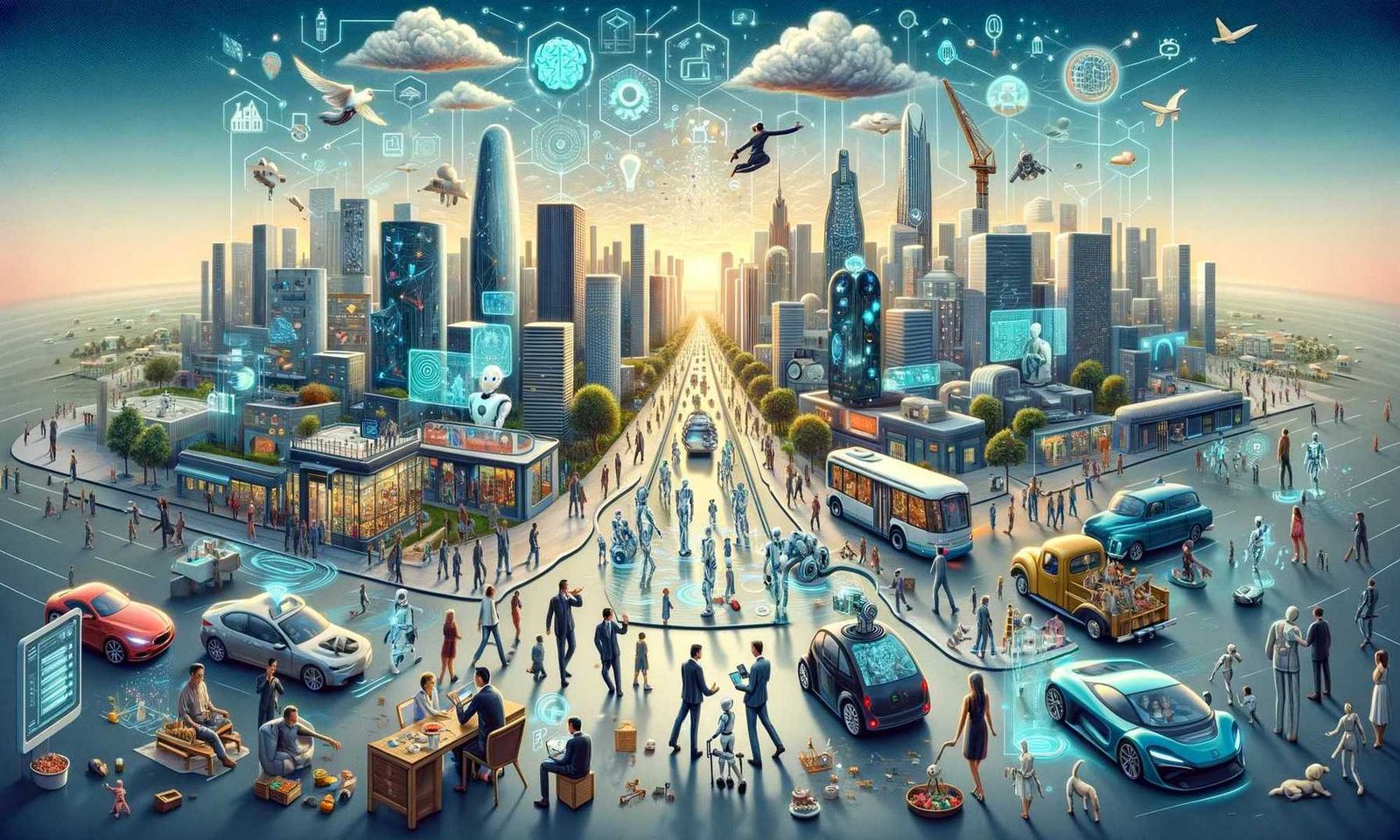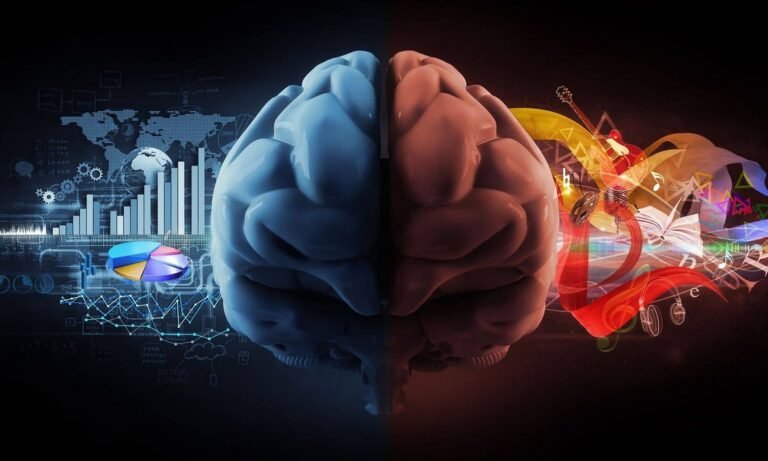Understanding AI: A Primer
Artificial Intelligence (AI) is a multidisciplinary field focused on creating machines capable of performing tasks that typically require human intelligence, such as reasoning, learning, problem-solving, perception, and language understanding. AI’s origins trace back to the mid-20th century, with milestones like Alan Turing’s work on computation and the Turing Test, designed to assess a machine’s ability to mimic human intelligence. Over time, AI has advanced significantly, driven by improvements in computer science, data availability, and computational power.
One major AI domain is machine learning, which enables computers to learn from data and make predictions, leading to breakthroughs in recommendation systems, fraud detection, and predictive analytics. Meanwhile, natural language processing (NLP) helps machines understand and respond to human language, powering virtual assistants and voice-activated devices. Computer vision further enhances AI’s capabilities, enabling facial recognition and autonomous vehicles, opening doors to various real-world applications.
The impact of AI extends beyond convenience, significantly transforming industries like healthcare, finance, education, and transportation. These advancements optimize efficiency while improving service quality. However, AI’s growing presence also raises concerns about automation replacing jobs and disrupting employment patterns. While AI creates new opportunities, it may exacerbate economic disparities if workers lack the necessary skills for evolving roles.
Ensuring an equitable transition requires prioritizing workforce reskilling and developing policies that prepare employees for an AI-driven future. By fostering adaptability and ethical AI development, society can harness the potential of artificial intelligence while addressing its challenges. A balanced approach to regulation, innovation, and skill development will be essential in shaping a future where AI complements human capabilities rather than replacing them.
AI’s Transformative Impact on Industries
The integration of artificial intelligence (AI) into various industries marks a significant shift in operational capabilities and service delivery. One of the most profound impacts of AI can be witnessed in the healthcare sector. Through predictive analytics, AI systems can analyze vast sets of medical data to identify patterns that inform patient care. This capability enables healthcare professionals to anticipate potential health crises and deliver personalized treatment plans, ultimately improving patient outcomes. However, the reliance on AI systems also raises concerns over data privacy and the ethical implications of automated decisions.
In finance, the influence of AI is similarly transformative. Financial institutions employ algorithmic trading systems that analyze market trends in real-time, allowing for rapid decision-making that can outperform traditional trading methods. Additionally, AI enhances risk management by providing insights into credit assessments and fraud detection. While these technologies contribute to increased efficiency and profitability, they also present challenges, such as the potential displacement of jobs traditionally held by human analysts and traders.
The education sector is another area significantly shaped by AI innovations. Personalized education experiences powered by AI algorithms can adapt learning materials and teaching strategies to fit individual student needs and learning paces. By analyzing learning data, educational institutions can better support at-risk students and improve overall academic performance. Nonetheless, this personalization can also lead to questions regarding equity in access to advanced technologies and the ramifications of relying heavily on software for educational processes.
Transportation is witnessing a revolution due to AI advancements as well, particularly in the development of autonomous vehicles. These vehicles promise to enhance road safety and improve traffic efficiency. However, the introduction of AI-driven cars brings forth regulatory challenges and the societal implications of a potentially reduced demand for driving-related jobs.
As AI continues to reshape these key sectors, it is essential to navigate its benefits and challenges carefully, considering its profound implications on businesses, economies, and job markets. A collaborative approach among policymakers, industry leaders, and researchers will be crucial in ensuring AI development aligns with ethical standards and societal needs.
The Future of AI in Society
The future of artificial intelligence (AI) holds immense potential, promising to reshape various aspects of modern life. As AI technologies continue to advance, the integration of machine learning, natural language processing, and automation into everyday processes will likely become more pronounced. One significant emerging trend is the increasing collaboration between humans and AI, which aims to enhance decision-making across various industries, from healthcare to finance. This synergy has the potential to improve efficiency and accuracy, ultimately benefiting society as a whole.
Public policy will play a crucial role in shaping the trajectory of AI development and its implementation in society. Policymakers must strike a balance between fostering innovation and ensuring safety by establishing regulations that promote ethical practices. These regulations can help prevent misuse of AI technologies, addressing issues such as data privacy, algorithmic bias, and the potential for job displacement. Moreover, constructive dialogue among governments, tech companies, and civil society will be essential for creating an inclusive framework that leads to responsible AI deployment.
As AI continues to gain prominence, tech companies must take on the responsibility of ensuring ethical AI practices in their operations. These organizations should prioritize transparency, fairness, and accountability in the development of AI applications. Implementing guidelines for ethical AI use can help build trust among users, as communities become increasingly reliant on these technologies for various functions.
In parallel, education and skill development will be vital in preparing individuals for an AI-driven future. To ensure that the workforce can adapt to evolving demands, educational institutions should revise curricula to emphasize digital literacy and critical thinking. By empowering people with the necessary skills, society can better navigate the complexities of an AI-oriented landscape and harness the technology’s full potential.
Ethical Considerations and Societal Challenges
The integration of artificial intelligence (AI) into various aspects of society presents a multitude of ethical dilemmas and societal challenges. One of the foremost concerns is data privacy. As AI systems increasingly rely on vast volumes of personal data to train algorithms and enhance decision-making processes, the risk of sensitive information being misused or inadequately protected becomes a pressing issue. Creating robust data protection frameworks is essential to safeguard individuals’ privacy rights while facilitating innovation in AI.
Another significant challenge is algorithmic bias. AI systems are often trained on historical data, which may contain prejudices. Consequently, these biases can perpetuate or even amplify inequalities when AI is employed in critical areas such as hiring practices, law enforcement, and loan approvals. To counteract this, it is vital to ensure that AI systems are designed with fairness and inclusivity in mind, involving diverse teams in the development process and ongoing assessments to identify and mitigate biases.
The implications of surveillance technology represent another complex ethical consideration. While AI can enhance security and efficiency in various sectors, its deployment in surveillance raises questions about civil liberties and personal freedoms. The potential for pervasive monitoring can lead to a chilling effect on free expression, thereby requiring thoughtful regulation and oversight to strike a balance between security and individual rights.
However, beyond incremental technological advancements, a more profound shift looms – the Tech Singularity, a hypothetical point at which AI surpasses human intelligence, leading to exponential and unpredictable transformation. As AI systems become increasingly autonomous, the nature of work itself may be fundamentally redefined, with traditional job roles being augmented or even replaced by hyper-intelligent systems capable of self-improvement. This evolution raises crucial questions about the relevance of human labor, ethical considerations in AI-driven decision-making, and the necessity for reimagining economic models that ensure equitable distribution of wealth in a post-labor society.
What’s More
The posts in My Blog feature reflective, story-driven pieces rooted in personal and societal insights.
The topics in My Interests explore abstract, philosophical ideas and their cultural and societal impact.
👁️ 8,783 Views


















